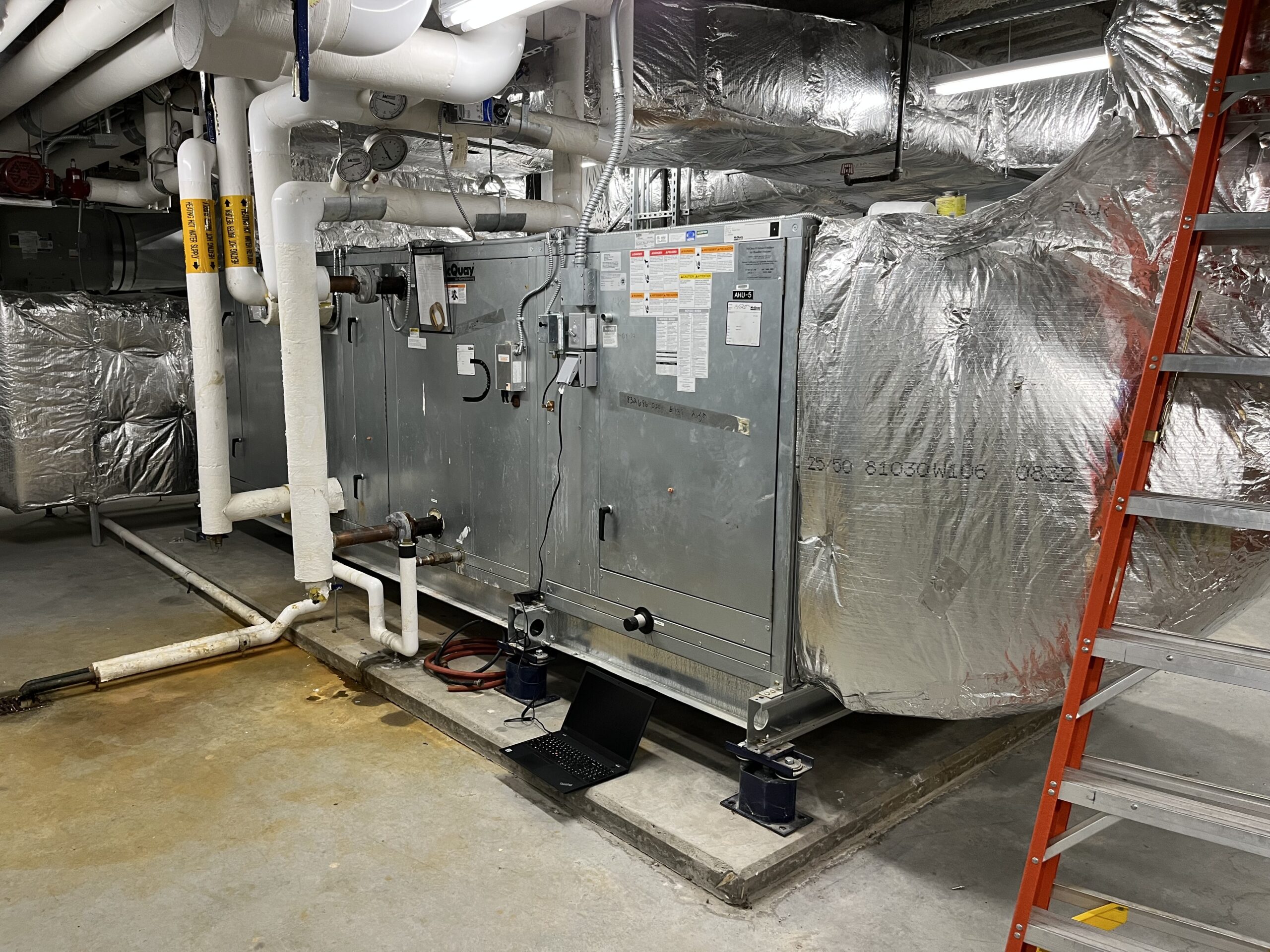Have you noticed your facility’s electricity bill creeping up over the years? While it might seem like your options are limited to simple fixes like turning off lights and unplugging devices, there’s often more potential for savings lurking beneath the surface. Sometimes, in order to find real energy savings, a deeper dive into your HVAC system is required to uncover what’s happening behind the scenes. If you own, manage, or work at a facility in Connecticut, Eversource has a Retro-Commissioning (RCx) program designed to help facility owners and operators save energy and money.
Not every facility qualifies for this program. To be eligible, the facility needs to be approximately 100,000 square feet and have a functioning direct digital control Energy Management System. If your facility meets these qualifications, you can reach out to an Eversource-approved RCx engineering firm, such as Sustainable Engineering Solutions. Our team has the ability to guide you through the application process to determine if your building is eligible to be a part of the program.
Survey Phase
Once your facility is approved, the journey begins with the survey phase. During this phase, the retro-commissioning (RCx) firm meets with the building’s facilities staff to understand how the facility operates and identify any specific systems or equipment that should be prioritized. Following this discussion, the RCx engineer inspects the physical condition of the equipment, assessing its age and remaining lifespan. Additionally, an initial review of the building automation system (BAS) is conducted to evaluate equipment schedules, operating modes, setpoints, and more.
By the end of the survey phase, typically completed within 60 days, the RCx provider will have a clear understanding of the building’s systems, their condition, and potential opportunities for energy savings associated with these systems. These insights are compiled into a comprehensive report, which outlines the findings and identifies the initial Energy Conservation Measures (ECMs) for the facility. ECMs typically focus on modifications to the existing building management system (BMS) with the goal of reducing overall electrical and gas consumption by modifying how the HVAC systems operate. Common ECMs might include reducing fan or pump speeds, installing variable frequency drives (VFDs) on fans or pumps, implementing discharge air temperature resets for air handling units, optimizing ventilation airflow, and more. Some ECMs can even enhance occupant comfort and improve indoor environmental health as an added benefit. The fee for the survey is covered by Eversource.
Investigation Phase
After the survey report is submitted to Eversource for review, it’s also shared with the customer for final approval. Once given the green light, the project advances to a more detailed investigation phase. During this stage, the RCx provider conducts a thorough examination of the equipment associated with the proposed ECMs from the survey phase. This deep dive involves verifying the actual operation of each unit, ensuring the calibration of devices and sensors, and assessing the performance of any equipment linked to the potential ECMs.
To ensure accuracy, it’s beneficial to have a facility staff member knowledgeable about the Building Automation System (BAS), or a contracted BAS technician, assist in the investigation. This person typically has the most comprehensive understanding of how the building’s HVAC systems are currently controlled. With their assistance, the RCx provider will test the equipment in various operational modes to verify system functionality and confirm the viability of the proposed ECMs.
Once the on-site work is complete and all data is collected, the RCx provider begins developing detailed calculations and a cost-benefit analysis for each ECM. This process includes obtaining firm installation costs from contractors. The resulting calculations and an investigation report are then submitted to Eversource, who reviews the findings, evaluates the feasibility of implementing the ECMs, and determines the incentives to be provided to the customer. These incentives can cover up to 40% of the installed cost of the measures.
The investigation phase is typically completed within six months, and the RCx fee can range from $10,000 to $60,000, depending on the size and scope of the project. This cost is significantly incentivized by Eversource.
Implementation Phase
Once Eversource approves the Energy Conservation Measures (ECMs) and the Owner gives the thumbs up, the project moves into the implementation phase. During this stage, the Owner hires contractors to carry out the work, while the RCx provider oversees the process to ensure everything is implemented according to design. The implementation typically takes around six months to complete, with RCx fees for this phase ranging from $5,000 to $30,000, and contractor installation fees ranging from $10,000 to $250,000, depending on the project’s complexity.
As part of the process, the RCx provider will also train facility staff on the changes made and the persistence strategies implemented. This training is crucial for maintaining the longevity of the measures and ensuring that energy savings continue well into the future.
The program’s final step is a post-installation persistence verification review, conducted 12 months after the ECMs have been implemented. This review ensures that the measures are still operating successfully, and if not, it helps identify any issues. While there are currently no penalties for poorly performing or non-functioning measures, this step is vital for keeping the building running efficiently. Now, all that’s left to do is sit back and enjoy the benefits of a healthier, more efficient building.
If you’re ready to start saving energy and cutting costs, contact SES to find out if your facility qualifies for the Eversource Retro-Commissioning program. Our expert team will guide you through the process, from initial assessment to implementation, ensuring you maximize your energy savings and enjoy a more efficient, comfortable building.

About the Author:
Jake Lyga is a Commissioning Engineer at Sustainable Engineering Solutions. He has worked on numerous Commissioning and Retro-Commissioning projects throughout Connecticut and Massachusetts. Jake earned his B.S. in Mechanical Engineering from the University of Hartford with a concentration in Energy and Sustainability and is a LEED Green Associate.

